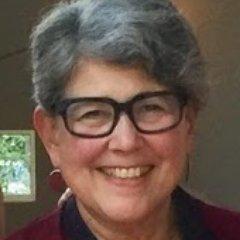
Cathy Lynn Grossman, former national religion reporter for USA Today and for Religion News Service, has a special interest in ethics and biomedical issues.
Posts By This Author
Be Thankful, Save the World?
IMAGINE AN UNLIKELY DUET. One singer is National Review senior editor Jonah Goldberg, a conservative political columnist who admits he indulged in “smash-mouth” rhetoric and once did a video mocking “social justice” as meaningless mush. The other is religion scholar Diana Butler Bass, a progressive liberal and author who champions social justice as central to a life of faith. Both published books this spring, and as they made separate media rounds, they sang the same song—an ode to gratitude.
Gratitude is having a big turn in the spotlight right now as influential writers, university researchers bolstered with millions in foundation grant funds, #blessed social media mavens, and more tout thankfulness as a boon to one’s spirit and health.
The claims are mighty for the benefits of thankfulness to others, to God, to Mother Nature. Bolster peace in the world—or at least your own small corner of it—via the virtue that could, by opening a path to moral consensus, save our society from fracturing in tribalism, fear, and frustration. Lower your blood pressure. Enhance your marriage. Find joy and avoid the sin of being an ingrate. Books and websites offer instructions for keeping a gratitude journal (feel measurably better about your life in a month!) or the recipe for a gratitude letter (allow 15 minutes, stay under 300 words, deliver in person if possible).
A recent study found that people who wrote “gratitude letters”—turning away from the “toxic emotions” stirred by negative thoughts to elucidate thankfulness—reported significantly better mental health four weeks and 12 weeks after their writing exercise ended, according to the online magazine of the University of California, Berkeley’s Greater Good Science Center. The center is the nexus for the Expanding the Science and Practice of Gratitude project, with more than $3 million in research grants and outreach programs.
Wrestling with the Angel of Death
JEANNE AUDREY POWERS, 85 years and counting, wanted to stop counting. She felt herself growing more frail, less clear-headed. She was losing her sight. Worst of all, the woman who once spoke on international podiums was losing her words.
However, Jeanne Audrey, as her many friends called her, was technically not terminally ill, despite the waves of mini-strokes stealing her senses. California physicians, gatekeepers under the state’s End of Life Options Act, would not deem her likely to die within six months, an essential qualification for a legal lethal prescription that would let her choose her final hour.
But she was dying to her self as she knew her self to be. And that was a form of suffering she did not believe God required of her, of anyone.
So Rev. Jeanne Audrey Powers—one of the United Methodist Church’s leading voices for ecumenism, a champion for LGBTQ rights within her denomination, and someone who knew the doctrines of her church included one against suicide—bought herself a one-way ticket to Switzerland last September. There she died, at peace with her decision, in a euthanasia facility.
She left two requests. One was that her last letter be included in the memorial service program, says Rev. Barbara Troxell, who officiated at the service. The letter describes a “deeply peaceful and affirming” vision Powers had of a fatherly God who came to her in prayer and tenderly called her “friend ... preparing me to trust the journey ahead.”
The second request was that her tombstone read: “Subversive to the end.”

